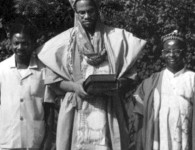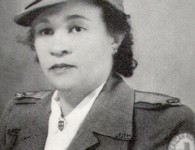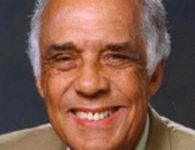Photo credits: The Egypt Tours Portal
Dr. Maulana Karenga is the creator of the Kawaida philosophy. He is a professor of Black Studies at California State University at Long Beach.
Dr Karenga also co-founded the Us Organization-a revolutionary cultural nationalist Black Power movement, established on September 7, 1965, in Los Angeles, California. He is also a founder of ASCAC. Kawaida is a kiswahili word meaning “tradition” and “reason.” It is pronounced as ka-wa-EE-da. Dr. Karenga defines Kawaida as “a communitarian African philosophy created in the context of the African American liberation struggle and developed as an ongoing synthesis of the best of African thought and practice in constant exchange with the world.”
Kawaida is the foundation for Kwanzaa – a Pan African centered holiday celebrated from December 26 to January 1 all over the world. The philosophy of Kawaida is largely responsible for the 1972 National Black Political Convention in Gary, Indiana, the increase of Black elected officials in America, and the seizure of Black political power in Newark, NJ.
Dr. Karenga has published many books on Afrikan history and culture. The most important book he has published on Kemet’s spirituality to this date is called The Selections From the Husia: Sacred Wisdom of Ancient Egypt.
Purchase and read Dr. Karenga’s powerful book by visiting here.
The 42 laws of Ma’at are translated into English in the Husia. Whenever I finish reading and meditating on Ma’at, I read also from our Husia, the following passages from the Medu Neter. Our ancestors instruct us after living Ma’at, we must turn to the Creator to recite them. In the Husia, on pages 111-112, Medu Neter says that our ancestors wrote, “I live on Ma’at, I satisfy myself with the righteousness of my heart. For I have done that which men and women request and that which pleases God. I
have found favor with God by doing that which he loves. I have given bread to the hungry, water to the thirsty, clothes to the naked and a boat to those without one. I have made due offerings to God and funeral offerings to the departed. Deliver me then, and protect me. Make no report against me in the presence of the great God. For I am one whose mouth is pure and whose hands are clean. Therefore, let it be said to me: “Welcome. Come in peace by those who shall see me.”
In America, there are a growing number of Kemetic temples being established in the Afrikan / Afrkan American community to provide alternatives to the faith traditions of the major religions in the western world. They are dedicated to the practice of Kemetic spirituality and Ma’at, such as the Temple of Anu in Newark, NJ, The Shine of Ma’at in Harlem, NYC, the Kemetic Temple in Chicago, Illinois, and The Ausar Auset Society headquartered in Brooklyn, NYC. (The Ausar Auset Society has chapters in several major cities in the United States as well as international chapters in London, England, Toronto, Canada, Bermuda, and Trinidad & Tobago.)
In summation, the 42 laws of Ma’at are the oldest moral and ethical codes in the world. Hundreds of thousands of people on the planet earth either follow or study its spiritual and philosophical path, particularly Afrikan people. If Ma’at is applied correctly in society, it could be the basis for revolutionary change in the Afrikan world community and for humanity.
Hotep (Medu Neter for Peace)!
*Note: Spelling Afrika with a k is not a typo. Using the k in Afrika is the Kiswahili way of writing Africa. Kiswahili is a Pan -Afrikan language. It is spoken in many countries in Africa. Kiswahili is the language used in Kwanzaa. The holiday of Kwanzaa is celebrated from December 26 to January 1.
Bashir Muhammad Akinyele is a History and Afrikana Studies teacher at Weequahic High School in Newark, NJ. He is also the co-coordinator for ASCAC’s (the Association for Study of Classical African Civilizations) Study Group Chapter in Newark, NJ. (https://ascac.org/)





















No comments